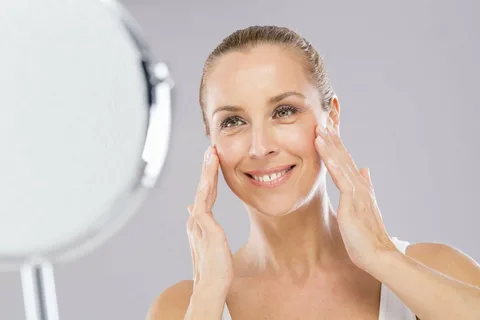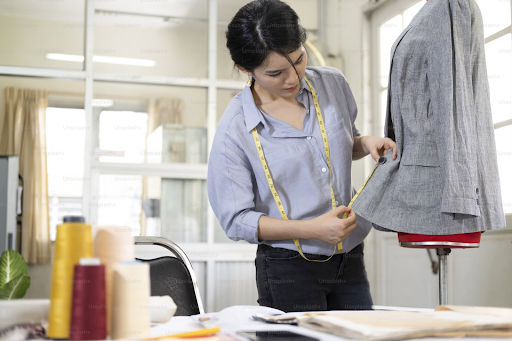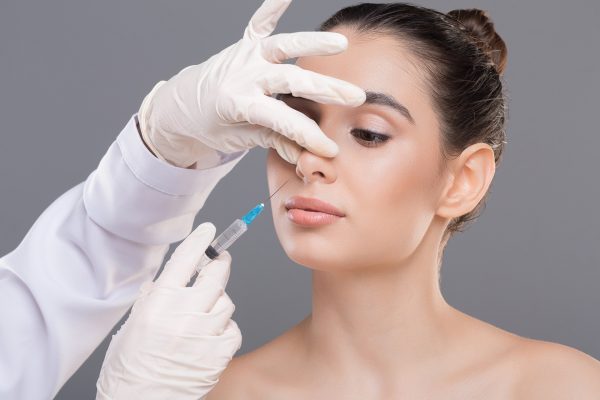Do you feel your skin looks older than it is? While there is a biological timeline, certain factors also contribute to how your skin looks and feels. What if you could slow down skin ageing and preserve a youthful complexion for a little longer? All you need to do is incorporate an anti-ageing skincare routine.
Skin ageing can make your skin thinner and fragile by losing the protective fat layer. The production of natural oils decreases and makes your skin dry and wrinkled. Using anti-ageing skincare products can help you maintain glowing skin. Before that, let’s learn more about skin ageing.
Understanding The Science Behind Ageing
Our skin has several layers, but it can be divided into three main categories – epidermis, dermis, and subcutaneous layer. Each layer comprises connective tissues infused with collagen fibres. The fibres provide strength and flexibility besides giving support.
Ageing results in thinning of the epidermis. Transformation in the layers of connective tissues diminishes the strength and elasticity of the skin. With ageing, your skin becomes thinner, fragile, and saggy. Here are a few factors that contribute to ageing.
Genetics
Your genes have a significant role in how your skin age. Your genes can influence your complexion and the wrinkles you may develop. Pleiotropic genes like MC1R contribute to setting the pace of skin ageing. As per studies, about 60% of skin ageing involves wrinkles rooted in genetics. People carrying genetic deficiencies may pass it on to their offspring.
Lifestyle
Lifestyle factors like diet and sleeping patterns can significantly impact your skin. Adequate nutrients provide vitamins and antioxidants to the skin and body. Antioxidants from nutrient intake help fight oxidative stress and prevent skin ageing.
Good sleep recharges and renews your skin cells. In contrast, sleep deficiency leads to reduced recovery, skin dullness, and early signs of skin ageing.
Environmental Factors
Ageing of the skin also occurs due to different environmental factors. Sun exposure and smoking are the foremost reasons. Also known as extrinsic skin ageing, it involves premature skin ageing. Genetic makeup makes certain individuals more susceptible to skin damage by extrinsic factors than others. Cigarette smoking and wrinkling also have an impactful association. People who smoke often develop lines or wrinkles around their mouths.
Key Ingredients In Anti-Ageing Skincare
Skincare can be complex if you are unaware of the right ingredients for your skin type. Whether a product will work or not depends on its ingredients. Several anti ageing creams, lotions, gels, serums, etc., exist. It is vital to check the ingredients before adding them to your skincare routine. Here are a few ingredients that can help reverse the signs of skin ageing.
Retinoids
Vitamin A compounds like retinol and retinoic acid are called retinoids. Retinoid products have been popularly used for topical application to fight fine lines and wrinkles. You can use a serum comprised of retinoic acid to alter the damaged DNA. It will aid in replicating new and healthy skin cells.
Vitamin C
A potent antioxidant, Vitamin C is another key ingredient. It helps tackle the unstable oxygen molecules that break down skin cells and cause wrinkles. You can try an advanced night repair cream with Vitamin C to protect your skin cells from oxidation.
Hyaluronic Acid
This ingredient is a holy grail for dry skin. But It will do much more than hydrate your skin. Did you know it is a key ingredient in keeping your skin youthful? A daily serum that has hyaluronic acid will reduce inflammation and improve scaling. It penetrates effectively and makes your skin plumper.
Developing An Anti-Ageing Skincare Routine
An anti-ageing skincare routine that suits your skin is the key to maintaining radiant and youthful skin. Remember to add dermatologically tested products for safe and effective results. DRSQ skincare products made for skin of all ages may fit your new anti-ageing routine. Here is a simple yet effective morning and night routine for your anti-ageing concerns –
- Use a gentle facewash to cleanse your face at least twice daily. Use a facial cleanser every morning after waking up and at night before sleeping.
- Next, a sheet mask can hydrate and nourish your skin. The sheet mask will only take 15 minutes to rejuvenate your skin.
- Now, your skin has been cleansed and prepared. A serum with active ingredients will now help repair and illuminate your skin. Take 3-4 drops of a repair serum with BHA and AHA, and use tapping motions to push it into your skin.
- Wait for a couple of minutes before applying an eye cream. Eye creams work wonders and help reduce wrinkles and fine lines under the eyes.
- Follow it with a lightweight moisturiser during the day to keep your skin bouncy. You can replace it with a night cream during your nighttime routine.
- Sunscreen is a must for all seasons. It is one of the most crucial steps of your anti-ageing skincare routine. Apply it daily before stepping out in the sun for the best results.
Lifestyle Changes To Complement Anti-Ageing Skincare
Besides following a skincare routine, you can also make a few lifestyle changes to slow down the ageing effects.
Exercise
Exercising moderately improves blood circulation and works as an immunity booster. It will simultaneously give your skin a more youthful appearance. The activities of skin cells’ mitochondria increase with exercise. Mitochondria is a cell’s battery. It makes the cells run effectively with adequate exercise, reducing ageing signs.
Healthy Eating
Healthy eating habits offer your body the right nutrients and antioxidants. A diet comprised of vegetables, fruits, nuts, whole grains and legumes has proved to be highly beneficial for slowing skin ageing. Ensure the diet is low in saturated fats and sugar.
Stress Reduction
Stress can break down the skin’s collagen and elastin, leading to wrinkle formation. A few stress management techniques include daily exercise, yoga, deep breathing exercises, meditation, mindfulness, etc. Managing stress plays an integral role in maintaining youthful and healthy skin.
Common Myths And Misconceptions About Anti-Ageing Skincare
The availability of many skin products and procedures makes deciding complex. Additionally, several myths about anti-ageing skincare can lead to poor decisions. Here are a few myths to know to help you make better choices.
The Pricier The Products, The Better The Results
It is not the cost but the ingredients determining a product’s effectiveness. A product may not be expensive but can help fight anti-ageing signs.
You Can Stop Using Anti-Ageing Products When You See Improvement
Ditching the products once you see improvements is not a great idea. You will need to continue using the products to maintain the results.
Anti-Ageing Products Always Irritate Skin
Most anti-aging products do exfoliation work, so there can be some peeling. However, the topical creams are usually tolerable. Start slowly to let your skin get used to it.
Conclusion
While ageing is inevitable, we can slow its effects by following an effective skincare routine, using the right products and making a few lifestyle changes. Use this guide to add these strategies to your daily routine and keep premature ageing at bay.





